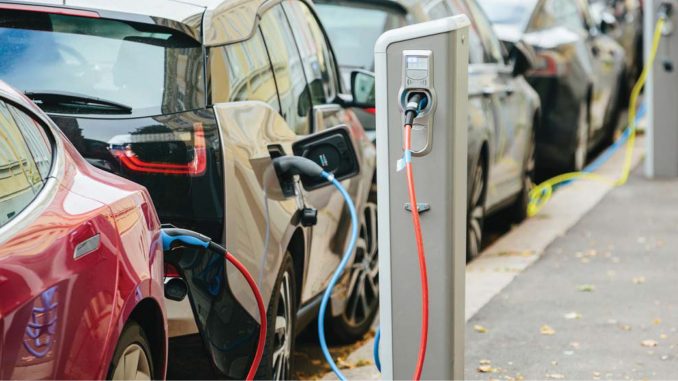The rise of electric vehicles (EVs) has the potential to significantly impact the energy industry and grid. With more and more people choosing to switch from traditional gasoline-powered vehicles to EVs, the demand for electricity is expected to rise. This increase in demand will have far-reaching effects on the energy industry, from the generation of electricity to its distribution, and could have significant implications for the power grid.
One of the most significant impacts of EVs on the energy industry is the effect they will have on electricity generation. As the number of EVs grows, so too will the demand for electricity to power them. This increase in demand will likely drive the growth of renewable energy sources, such as wind and solar power, which are already growing rapidly. By replacing traditional gasoline-powered vehicles, EVs will help to reduce greenhouse gas emissions and decrease the amount of pollutants in the air, further contributing to the growth of renewable energy sources.

In addition to the impact on electricity generation, EVs will also have an impact on the distribution of electricity. As the demand for electricity grows, the power grid will need to be updated and improved to accommodate this increase. This will likely require the construction of new transmission lines, substations, and distribution systems, which will be expensive and time-consuming. The impact of this investment in the grid will be felt throughout the energy industry, as companies will need to invest in new technology and infrastructure to keep pace with the growing demand for electricity.
Another important impact of EVs on the energy industry is the effect they will have on electricity pricing. As the demand for electricity grows, so too will the price of electricity. This increase in price could potentially make it more difficult for some people to afford to charge their EVs, especially those who live in areas with high electricity prices. It will also likely result in higher electricity bills for businesses and homeowners, which will have an impact on the overall economy.
The impact of EVs on the energy industry is not limited to just the electricity sector. The growth of EVs will also have an impact on the oil and gas industry, as EVs will likely displace the demand for gasoline and diesel. As a result, oil and gas companies will need to find new ways to monetize their existing assets, such as developing new products and services, or investing in alternative energy sources.
The rise of EVs will also have an impact on the automobile industry. As more people switch to EVs, traditional automakers will need to pivot their focus and invest in new technology and infrastructure to stay competitive in this rapidly evolving market. Automakers will also need to invest in the development of charging infrastructure to support the growth of EVs. This investment will likely include the construction of new charging stations, as well as the development of new charging technologies, such as fast charging and wireless charging.
Conclusion
The impact of EVs on the energy industry and grid is likely to be significant. From the generation of electricity to its distribution and pricing, the growth of EVs will have far-reaching effects on the energy industry. The rise of EVs will also have an impact on the oil and gas industry, the automobile industry, and the overall economy. As the demand for EVs continues to grow, it is important for companies and governments to invest in the technology and infrastructure necessary to accommodate this growth and ensure a smooth transition to a more sustainable energy future.



